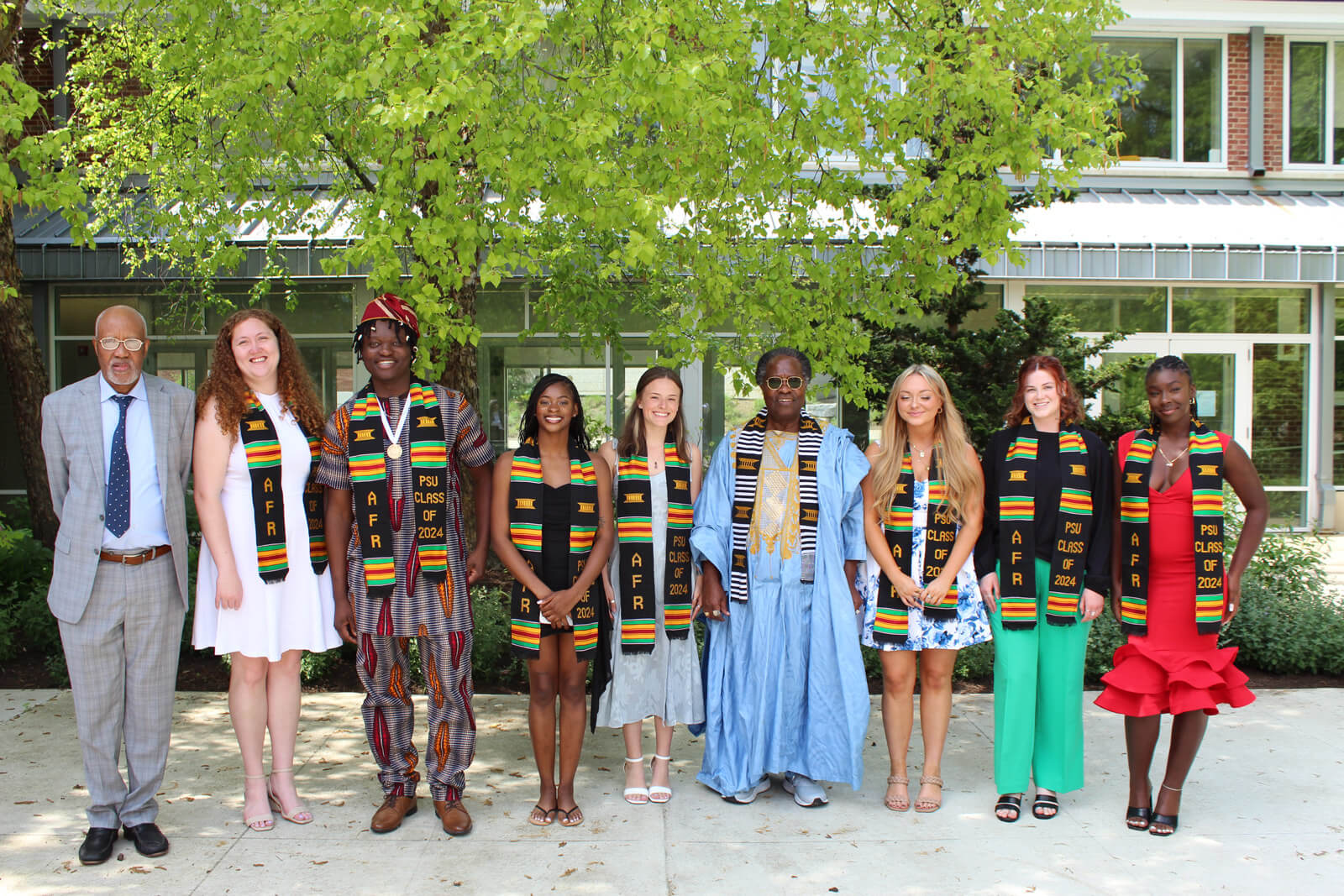The African Studies Program recognizes its graduating majors and minors at the Kente Cloth Ceremony where it celebrates their achievements with their families, friends, the faculty, and staff.
Kente is more than just a cloth. Like most of Africa’s visual art forms, it is a tangible representation of history, philosophy, ethics, religious belief, and political thought. And, like art forms the world over, it figures in stirring celebrations of community life and personal achievement.
At one time only royalty could commission and wear Kente, and then only for special social functions. New technologies and ideologies of production eventually made it more widely accessible to those who could afford it. Nevertheless, the fabric still retains its association with such honor. Today, in spite of the proliferation of all types of Kente, the authentic forms of the cloth are still symbols of social prestige, nobility, and cultural sophistication.
When students are presented with the Kente stole, it not only symbolizes their transition and singular achievement, but places them in the context of prestige, gaiety, and glamor evident during festivals, historic commemorations, and other community events, where people proudly wear their best Kente to reflect the spirit of the occasion.
